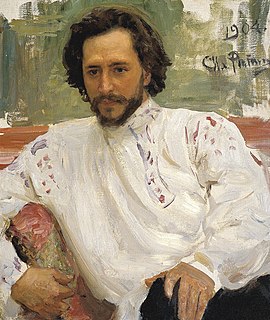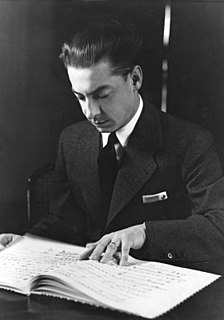A Quote by Erich Fromm
Alienation as we find it in modern society is almost total… Man has created a world of man-made things as it never existed before. He has constructed a complicated social machine to administer the technical machine he built. The more powerful and gigantic the forces are which he unleashes, the more powerless he feels himself as a human being. He is owned by his creations, and has lost ownership of himself.
Quote Topics
Alienation
Almost
Before
Being
Built
Complicated
Constructed
Created
Creations
Existed
Feels
Find
Forces
Gigantic
Himself
His
Human
Human Being
Lost
Machine
Made
Man
Man-Made
Modern
Modern Society
More
More Power
Never
Owned
Ownership
Powerful
Powerless
Social
Society
Technical
Things
Total
Which
World
Related Quotes
Man is a machine which reacts blindly to external forces and, this being so, he has no will, and very little control of himself, if any at all. What we have to study, therefore, is not psychology-for that applies only to a developed man-but mechanics. Man is not only a machine but a machine which works very much below the standard it would be capable of maintaining if it were working properly.
Armstrong, sitting in the commander's seat, spacesuit on, helmet on, plugged into electrical and environmental umbilical's, is a man who is not only a machine himself in the links of these networks, but is also a man sitting in (what Collins is later to call) a 'mini-cathedral.' a man somewhat more than a pilot, somewhat more than a superpilot, is in fact a veritable high priest of the forces of society and scientific history concentrated in that mini cathedral, a general of the church of the forces of technology.
Speed is the form of ecstasy the technical revolution has bestowed on man. As opposed to a motorcyclist, the runner is always present in his body, forever required to think about his blisters, his exhaustion; when he runs he feels his weight, his age, more conscious than ever of himself and of his time of life. This all changes when man delegates the faculty of speed to a machine: from then on, his own body is outside the process, and he gives over to a speed that is noncorporeal, nonmaterial, pure speed, speed itself, ecstasy speed.
Man is a machine, but a very peculiar machine. He is a machine which, in right circumstances, and with right treatment, can know that he is a machine, and having fully realized this, he may find the ways to cease to be a machine. First of all, what man must know is that he is not one; he is many. He has not one permanent and unchangeable “I” or Ego. He is always different. One moment he is one, another moment he is another, the third moment he is a third, and so on, almost without end.
The man who has given himself to his country loves it better; the man who has fought for his friend honors him more; the man who has labored for his community values more highly the interests he has sought to conserve; the man who has wrought and planned and endured for the accomplishment of God's plan in the world sees the greatness of it, the divinity and glory of it, and is himself more perfectly assimilated to it.
The cry for freedom is a sign of suppression. It will not cease to ring as long as man feels himself captive. As diverse as the cries for freedom may be, basically they all express one and the same thing: The intolerability of the rigidity of the organism and of the machine-like institutions which create a sharp conflict with the natural feelings for life. Not until there is a social order in which all cries for freedom subside will man have overcome his biological and social crippling, will he have attained genuine freedom.
Before modern man can gain control over the forces that now threaten his very existence, he must resume possession of himself. This sets the chief mission for the city of the future: that of creating a visible regional and civic structure, designed to make man at home with his deeper self and his larger world, attached to images of human nature and love.
When every one is to cultivate himself into man, condemning a man to machine-like labor amounts to the same thing as slavery. If a factory-worker must tire himself to death twelve hours and more, he is cut off from becoming man. Every labor is to have the intent that the man be satisfied.... His labor is nothing taken by itself, has no object in itself, is nothing complete in itself; he labors only into another's hands, and is used (exploited) by this other.
... regard this body as a machine which, having been made by the hand of God, is incomparably better ordered than any machine that can be devised by man, and contains in itself movements more wonderful than those in any machine. ... it is for all practical purposes impossible for a machine to have enough organs to make it act in all the contingencies of life in the way in which our reason makes us act.
In our profession someone can be very brilliant and acquire total technical mastery. Yet in the last resort, the only thing that really counts is his quality as a human being. For music is created by Man for Man. And if someone sees nothing more than notes in it, this can perhaps be very interesting, but it cannot enrich him. And music should exist for one purpose only; to enrich Man and give him something he has lost in most respects.




































